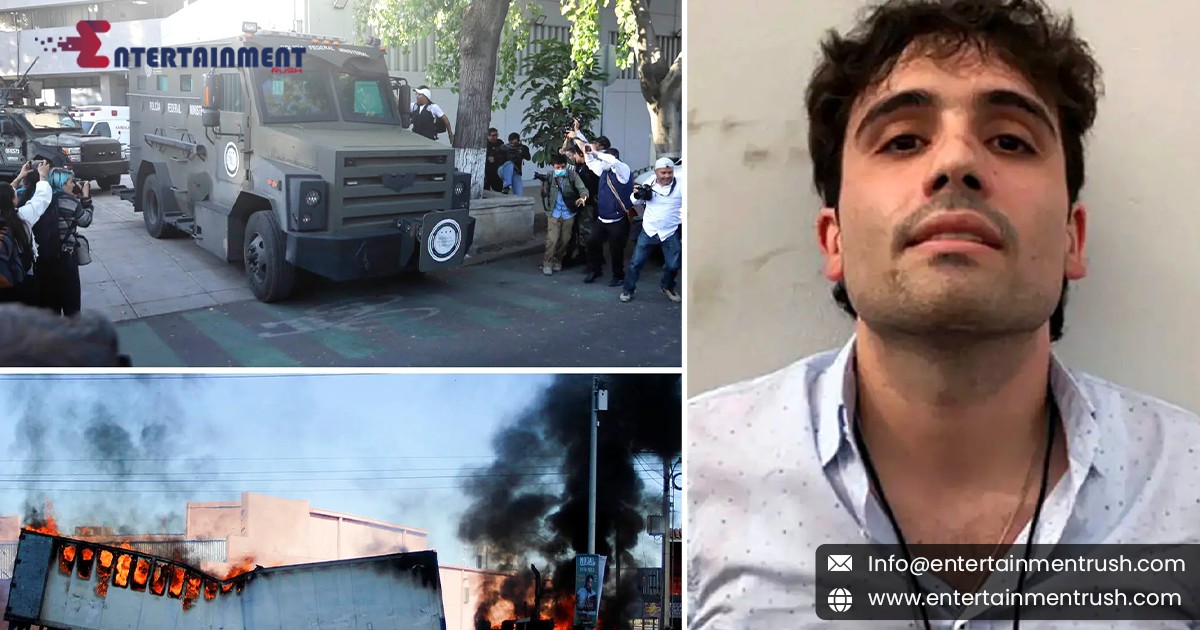In an unexpected development, law enforcement authorities have verified that Ovidio Guzmán López, the son of Joaquín “El Chapo” Guzmán, masterminded the kidnapping and entry into the United States of a rival cartel boss. This discovery has exposed a major and frightening development in the continuing war against drug cartels, sending shockwaves across the worlds of organized crime and law enforcement. The seriousness of the problem shows the intricate and sometimes concealed relationships between international law enforcement and organized crime, as well as the dangerous nature of cartel warfare.
The Legacy of the Guzmán Family and Their Cartel Operations
One of the most infamous drug trafficking groups in history, the Sinaloa Cartel, has long been associated with the Guzmán family. El Chapo’s kids appear to have carried on and, in certain circumstances, enhanced their father’s tradition of eluding capture and carrying out brutal operations with impunity. “El Ratón,” also known as Ovidio Guzmán López, has played a significant role in the cartel’s continuous operations. His most recent acts have brought attention to a concerning rise in the violence and cunning of the cartel.
The Brutal Nature of Cartel Rivalries and Cross-Border Crime
The ugly and sometimes vicious nature of cartel competition is brought home by Ovidio Guzmán’s kidnapping of a fellow cartel boss. Officials claim that the abducted leader, who belonged to a rival cartel, was taken into the nation by force and transferred to the United States. This drastic action seems to have both punitive and strategic motivations. Abductions are a common tactic used by cartel leaders to establish their authority, settle grudges, or get information. The decision to bring the competitor into the United States emphasizes how cross-border cartel activities are and how difficult it is for authorities to combat them.
Implications for Law Enforcement and International Cooperation
Following the abduction’s public disclosure, government and law enforcement authorities have responded aggressively. Regarding the operational dynamics of drug cartels and their ability to carry out high-stakes operations across international boundaries, the case is a major milestone for U.S. officials. The response of American law enforcement to the kidnapping is indicative of larger initiatives to tackle drug-related criminality and break up the networks that incite this kind of violence. This case also emphasizes how important it is for Mexican and American authorities to work together more closely in order to confront the complexity of cartel activity and stop it from getting worse.
Far-Reaching Implications and the Human Cost of Cartel Violence
This development has far-reaching repercussions. Firstly, the kidnapping highlights the extent cartels will go to in order to establish dominance and destroy competitors, which emphasizes the need for strong police enforcement tactics. The entry of a cartel leader into the United States also calls into question border security protocols and their ability to deter such high-profile criminal activity. As the inquiry progresses, it should offer important insights into cartels’ operating plans and how they take advantage of the legal and enforcement systems.
A sobering reminder of the human cost of cartel violence is this occurrence. The real lives impacted by these criminal enterprises—those of abduction victims and the larger communities afflicted by drug-related violence—live beyond the headlines and law enforcement reporting. In addition to strict law enforcement measures, addressing the issue calls for all-encompassing approaches that include community involvement, preventative initiatives, and assistance for those who are impacted.
A Stark Reminder of the Challenges Ahead
The latest admission that El Chapo’s son planned the kidnapping and entry of a fellow cartel boss into the United States is a noteworthy and unsettling advance in the continuing war against organized crime. This case demonstrates the intricate and frequently hazardous nature of cartel activities and emphasizes the necessity for ongoing monitoring and collaboration amongst foreign law enforcement organizations. As investigators attempt to fully understand this tragedy, it serves as a sobering reminder of the ongoing difficulties and the necessity of taking decisive action to counter the power and violence of drug cartels.




Leave feedback about this